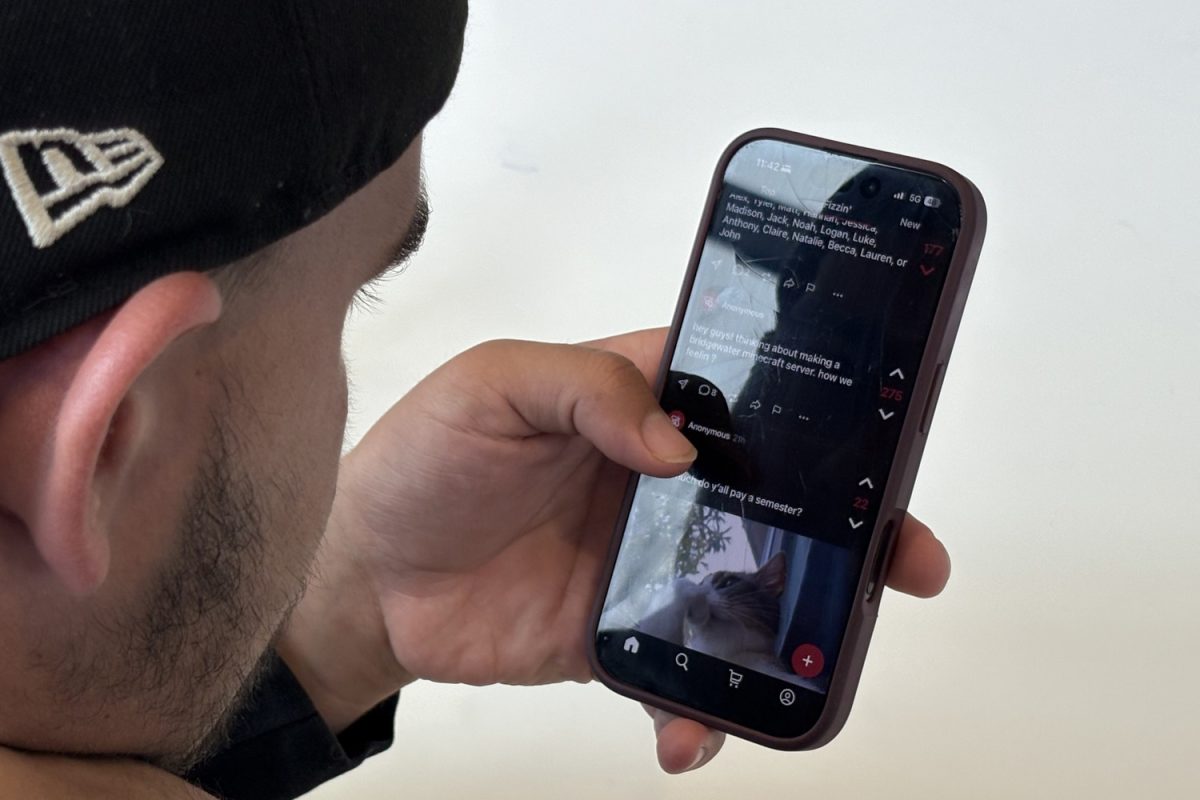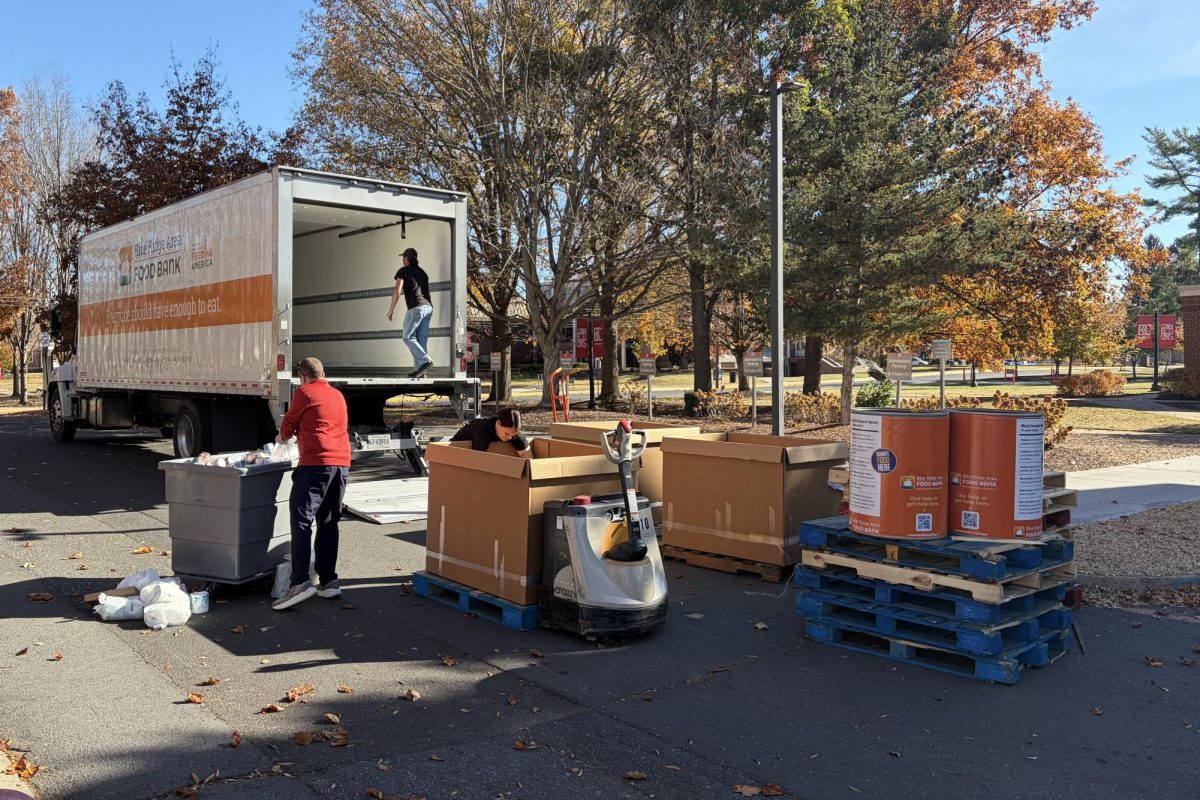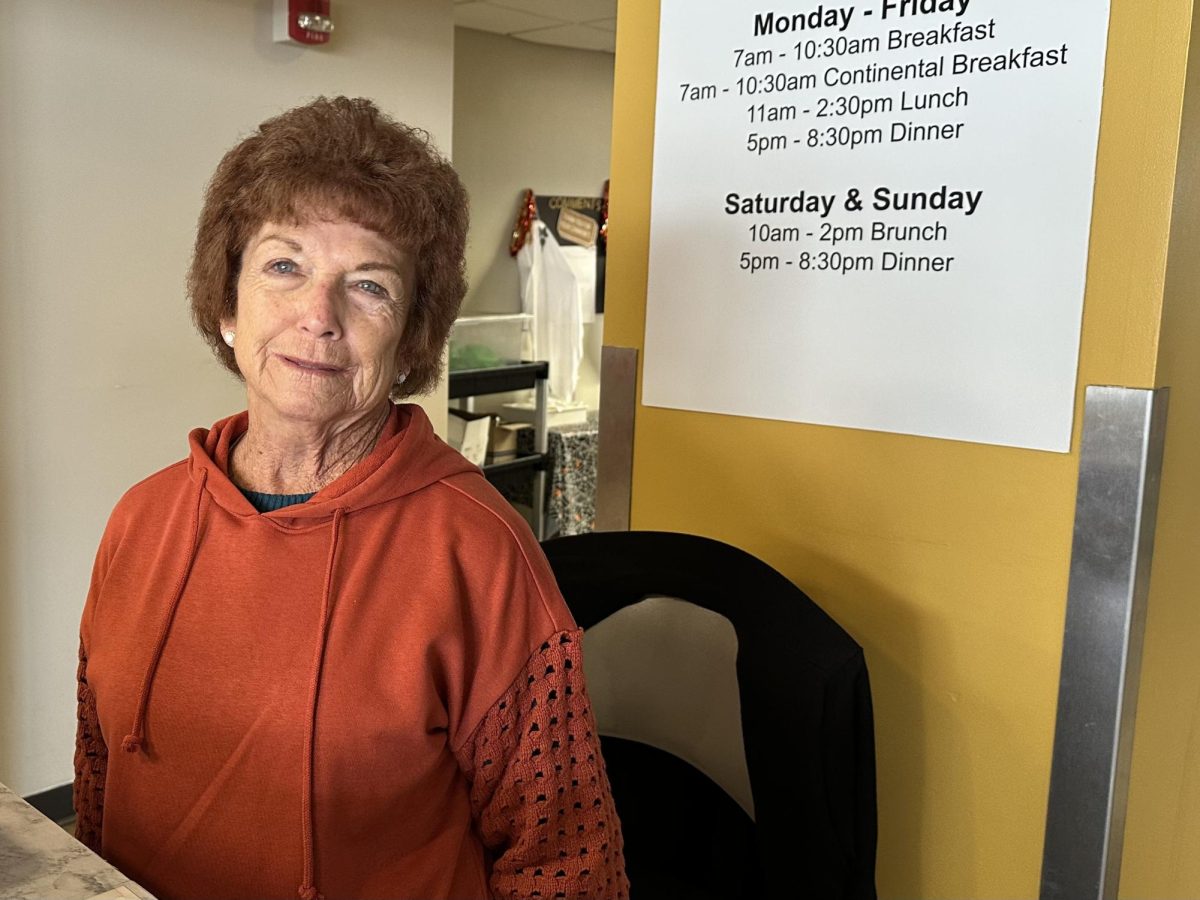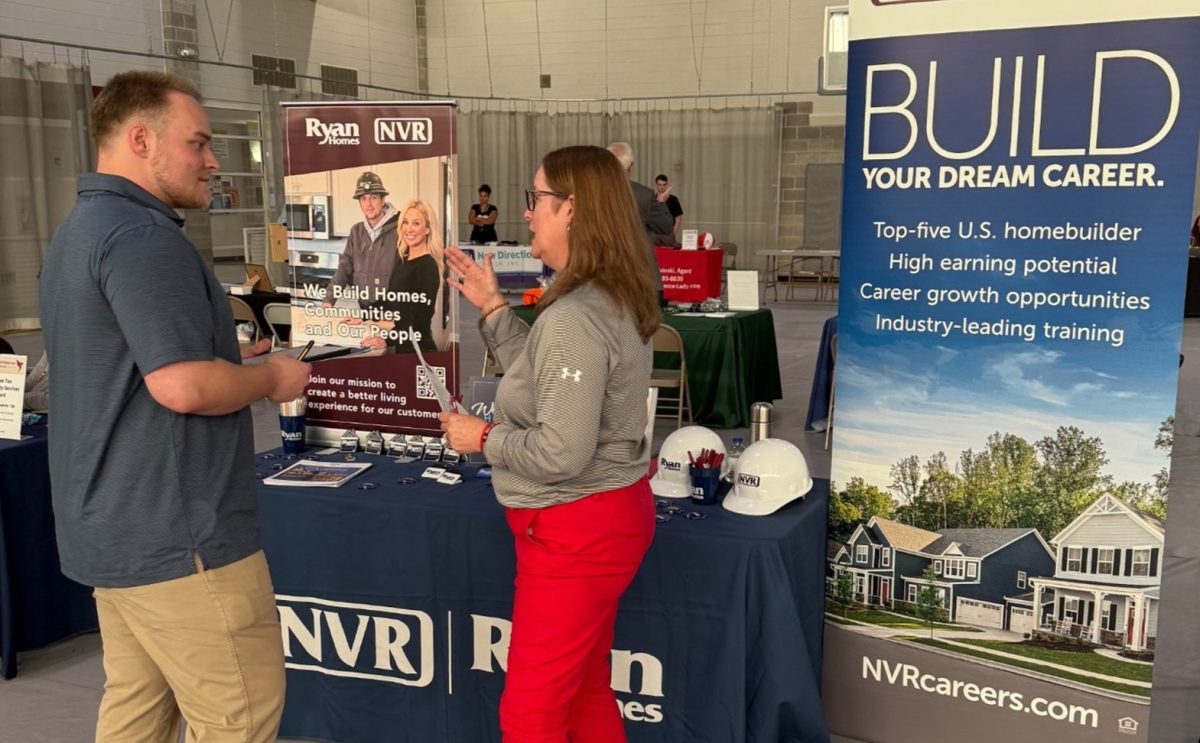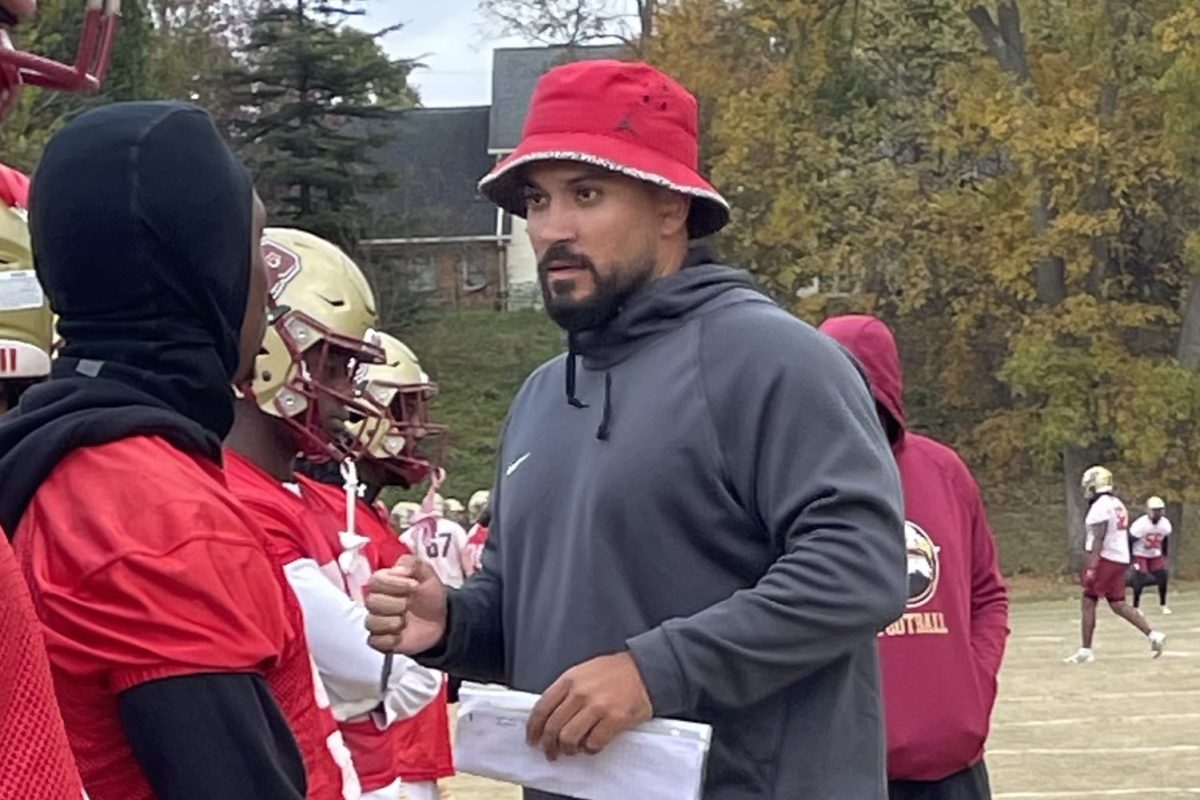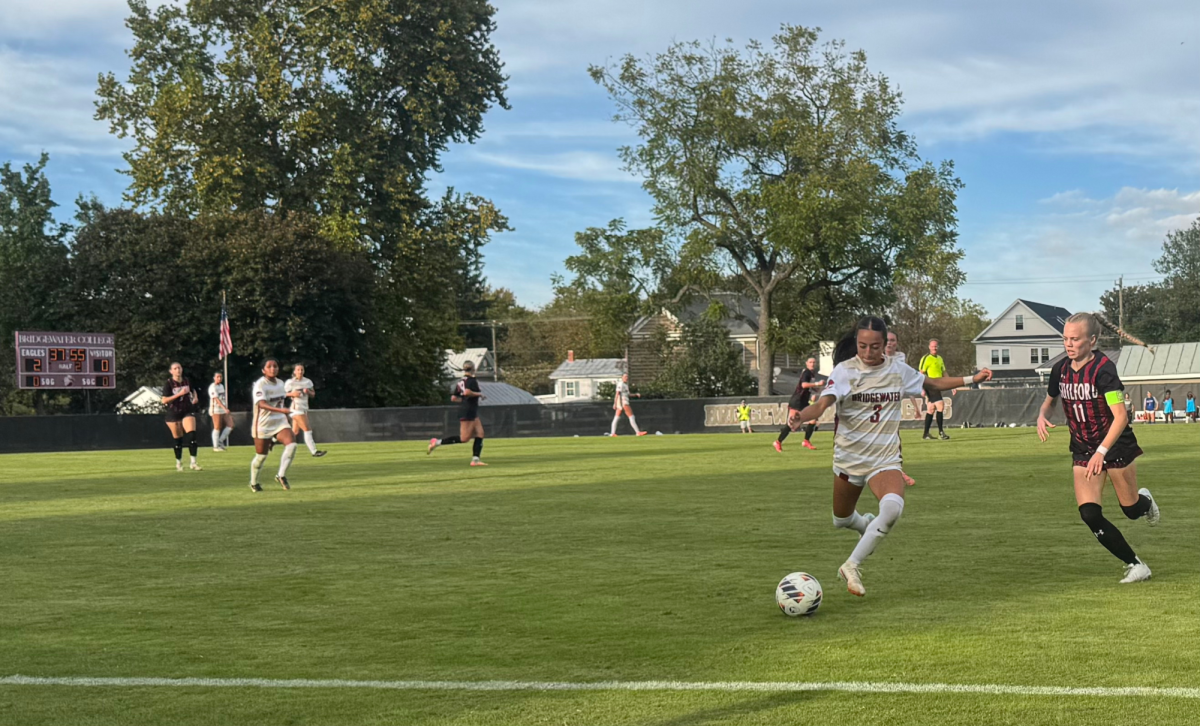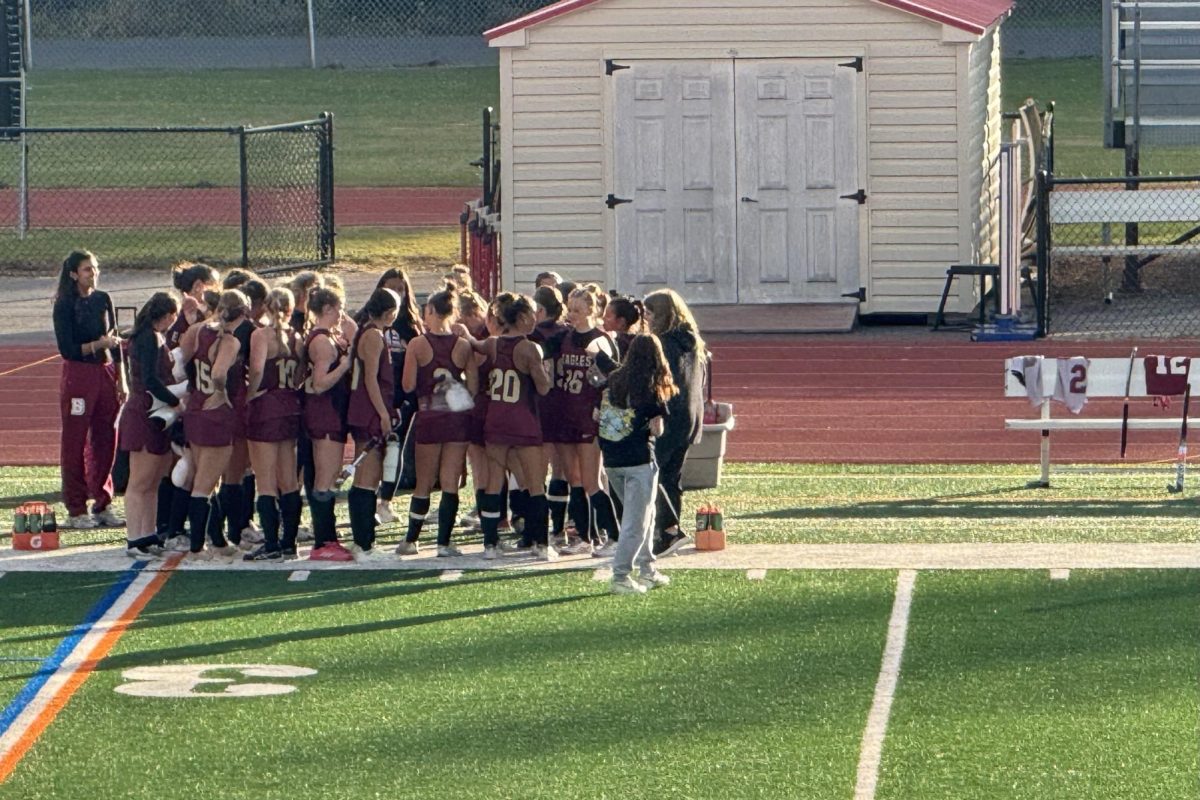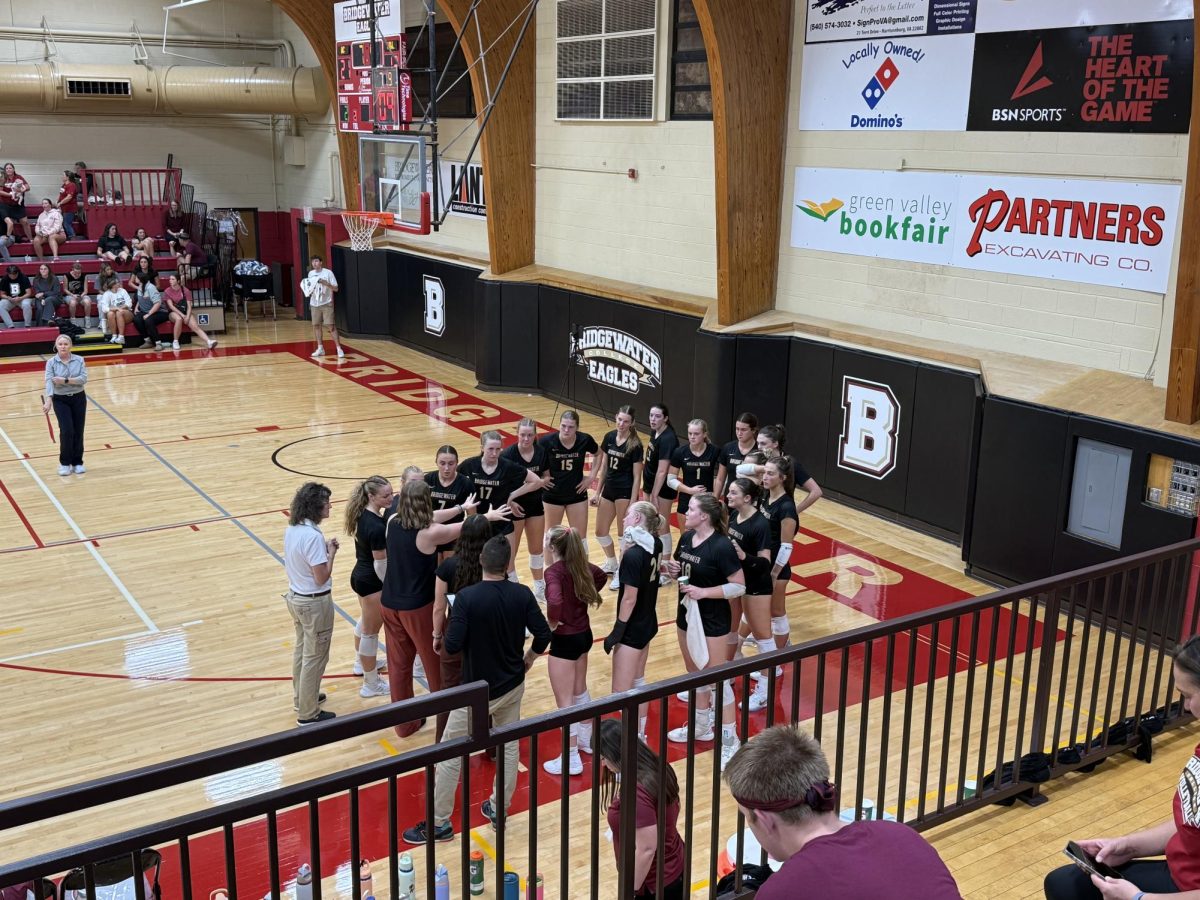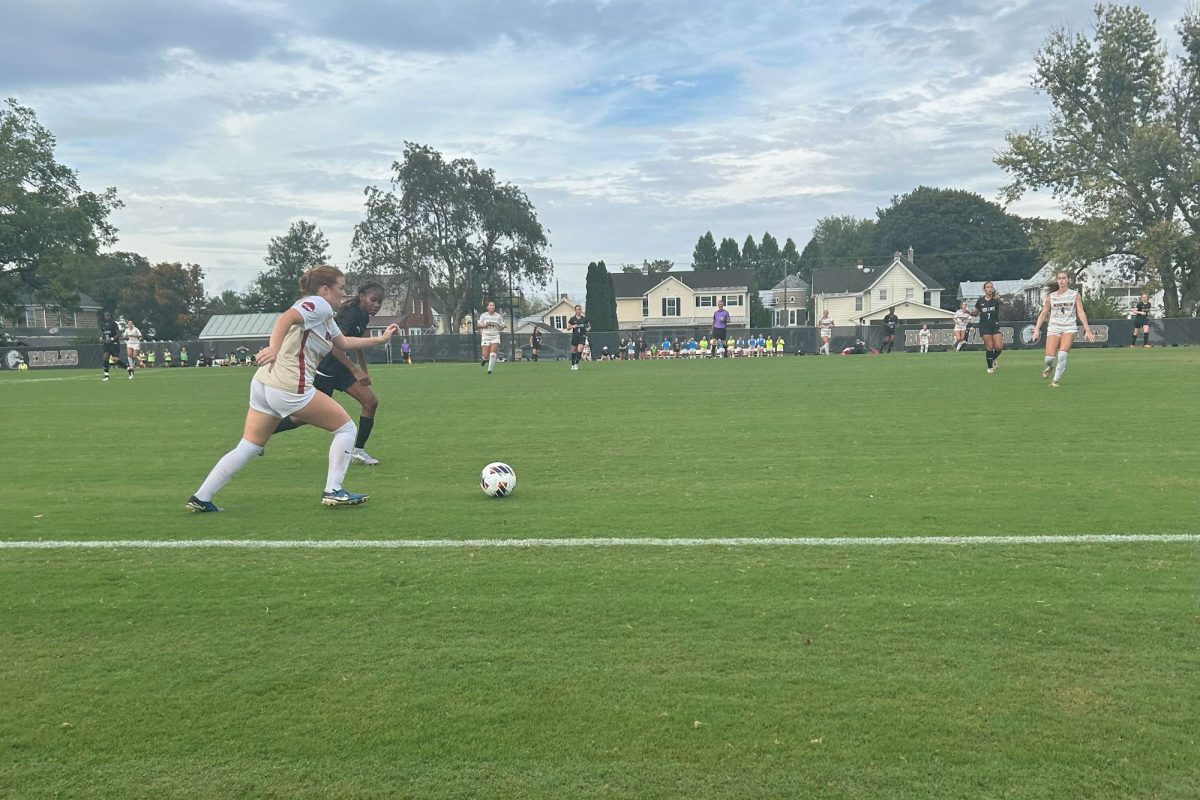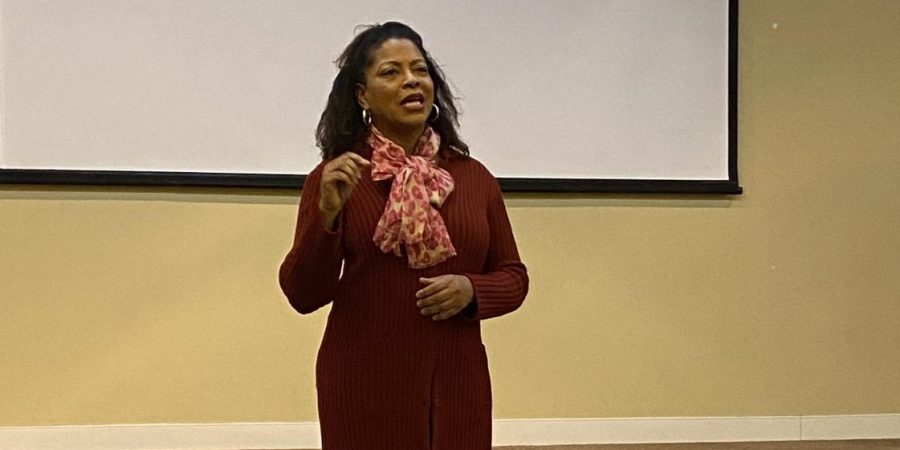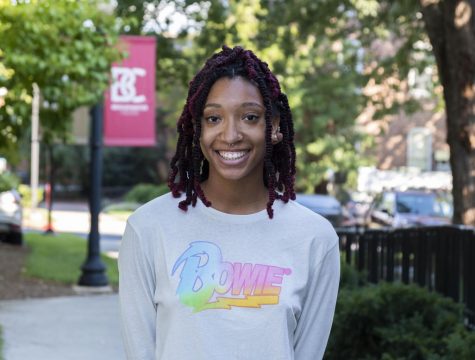Donna Hopkins Comes to Bridgewater College
Television Personality Speaks to Students About Overcoming Struggles and Receiving Victory
Pictured is Donna Hopkins, who gave a lecture at Bridgewater College about overcoming adversities and seeking victories within one’s life
February 6, 2020
Bridgewater, Va- Donna Hopkins, a former scholarship athlete in both basketball and track, current co-host and reporter on the Tony McGee Pro Football Plus on Mid Atlantic Sports Net, author of “Getting To The Other Side of Victory,” founder and CEO of the non-profit Hopkins Breast Cancer, and a public speaker for breast cancer awareness programs, spoke to Bridgewater College students on Jan. 31 in the Boitnott Room.
Hopkins, who was introduced by the women’s basketball assistant coach Reggie Blackmon, is a two-time breast cancer survivor and an amputee.
Hopkins, born and raised in Oak Hill, West Virginia, currently resides in Silver Spring, Maryland. As a child, Hopkins struggled to speak, write, and read. When Hopkins was growing up, her father called her a “tomboy” because of her love for basketball.
“I remember when I was a little girl, we had a dirt court in our backyard. The court had been used by my entire family and neighborhood children; therefore, we beat the ground down until it became dirt. The neighbors never wanted to pick me because I was a girl. In response, I would hold the ball purposely and would explain to everyone that no one would get the ball until someone picked me,” said Hopkins.
Hopkins received a basketball scholarship from Fremont State University. When the track coach noticed how far Hopkins could jump during her sophomore year, she received a scholarship for track. Although sports came naturally to Hopkins, she had to make a drastic adjustment from high school to college because taking a test, studying, and reading was extremely challenging.
After graduating, Hopkins realized that it was impractical to continue to hide behind her disability. She decided to take an extra step to fully learn how to read and speak when she started applying for jobs and one of the requirements was to read a teleprompter. She went to a reading center in Washington, DC. “I was not embarrassed; I wanted to conquer and move on,” Hopkins said.
Hopkins got a personal tutor to improve her enunciation and reading through hands-on learning. Hopkins went to her tutor’s house twice a week. Although Hopkins hated reading out loud because she would constantly stumble on words, the tutor made Hopkins feel “relaxed and the walls came down.”
After Hopkins read, the tutor made her practice writing. “‘You are smart, and you are going to make it,’ said my reading and writing speech tutor. She is a key reason to where I’m at today. She made me feel better within myself at 24,” said Hopkins.
“It is never too late to get help with what you struggle with within your life. It is for you; it does not matter what anybody else says. Even if you are 50 and want to be a dancer you may not end up on Broadway, but you can dance at the local community center. Several people would ask ‘Why didn’t your teachers catch on?’ The reason why I struggled in these areas was that I had a lot of cotton in my ear which caused ear-infections which resulted in me not hearing my teachers well,” said Hopkins.
Hopkins transitioned into describing how cancer severely affected her mentally, physically, and emotionally. Hopkins did not tell her mother the first time she got cancer because her mother was sick herself.
“When you hear the big ‘C’ word, people associate it with a death sentence. Despite what the doctor said, I knew I was a winner and was going to defeat it,” said Hopkins.
Even after receiving the news for the second time that cancer returned, Hopkins did not believe what traumatic event would happen next.
“It felt like a freight train hit me in 2010. It was a sunny day when I went into the hospital. It was supposed to be an easy surgery that would have a five-day recovery, but instead six surgeries and two and a half months later, I was blindsided by the unthinkable,” said Hopkins.
Hopkins had a blood clot in her foot, which resulted in the foot turning purple, and the clot moved to her arm. Hopkins felt like an “inflated balloon” when she awoke.
After it was decided to amputate her leg beneath the knee, Hopkins cried, but then says she asked how to move forward.
“I wanted to dig a hole and jump in myself. I lost 40 pounds, and if I wasn’t in physically good shape, I wouldn’t have made it. I was in a state of shock, but I was still fighting within because God said my assignment was not over yet. I brought life back into a deadly situation,” said Hopkins.
Although Hopkins encountered physical and emotional setbacks, she believed deeply that if you have joy and fight in you, one should live life and enjoy it by cultivating relationships, not obsessing over worldly possessions.
Hopkins’ first mentor was James Brown from CBS Sports on a gospel station. After gaining experience on the gospel station with James Brown, Hopkins got her first sports radio broadcasting job. Hopkins described how much time and effort she had to put in at the job. She would leave the office at midnight most nights and would have to return by 6 a.m. Hopkins dressed in a suit for the entirety of her first year because she never knew who was going to show up.
During Hopkins’ career, she has covered the NBA, WNBA, two Super Bowls, MEAC track meets, and the Washington Redskins for thirty years. The way Hopkins prepares for her interviews is by attending practices to build relationships with players. This tactic made it easier to sit down and talk to the players.
“Do not think that if you do not make ESPN, Fox, or CBS then you are not successful. I have been in the industry for 30 years, and I view myself very successfully. The people that I started with that went to those companies are no longer in the industry anymore,” said Hopkins.
Hopkins refuses to let her handicap and struggles define who she is. Hopkins believes that work ethic is the key to life, never letting limitations stop her from doing what she loves.
Hopkins went from struggling to read, write, and speak to writing her first book two years ago. Currently, she is working on her first children’s book.
Hopkin ended her lecture answering questions about internships, locker room interviews, and Joe Gibbs.

